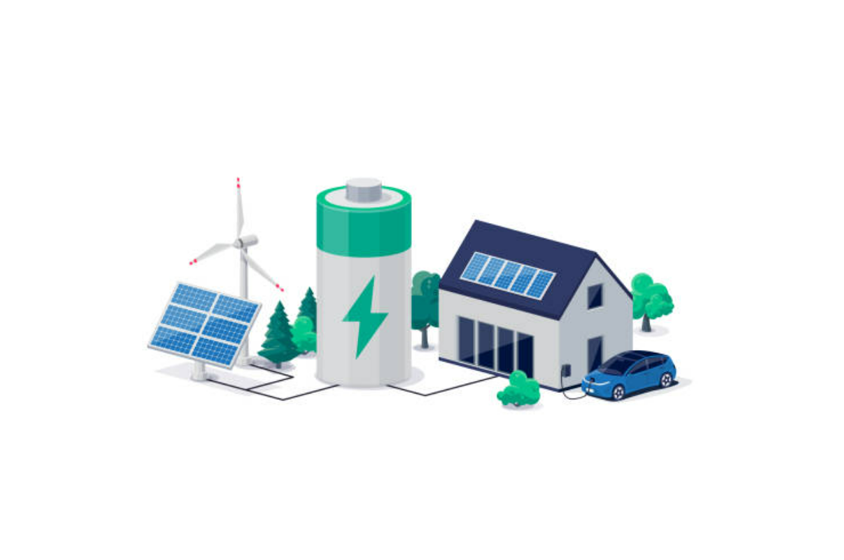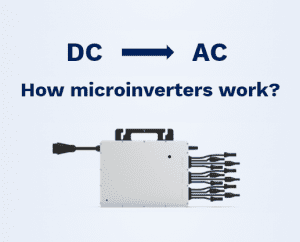Lithium-ion solar batteries:
the best energy storage solution?
Batteries are a useful addition to any solar system, working as part of the system to store excess energy and provide increased reliability, and this includes lithium solar batteries.
Ever since Tesla released the Powerwall, a lithium-ion solar battery, back in 2015, lithium-ion solar batteries have been growing in popularity. Now, they are commonly used as batteries for residential and commercial solar systems, with many competitors to the Powerwall available.
However, they’re not the only type of energy storage solution for solar. In fact, lead-acid batteries were popular long before Powerwall burst onto the scene, and there is still debate about which type of battery is best for solar.
In this post, we look at some of the benefits and drawbacks of lithium solar batteries and help you decide if a lithium-ion solar battery bank is the right choice for you.
Contents:
● What are lithium solar batteries?
● The advantages of lithium batteries for energy storage
● The disadvantages of using lithium batteries
● How much do lithium-ion batteries typically cost?
● Are lithium-ion batteries the best solution?
What are lithium solar batteries?
Lithium solar batteries are normal lithium batteries (otherwise known as lithium-ion batteries) used as part of a solar system. While they are essentially the same technology as any other lithium-ion battery, the batteries are usually specifically sold as solar batteries.
Lithium-ion batteries are remarkably long-lasting and efficient in comparison to most batteries, so they are ideal for solar systems, which regularly charge and discharge any linked batteries.
The advantages of lithium batteries for energy storage
Lithium batteries for solar panels have a range of energy storage benefits. To summarize:
1. They have a long lifespan
2. Can handle inconsistent charging cycles
3. You can benefit from the full capacity
4. They’re easier to maintain
Let’s go into some more detail below.
A lifespan of thousands of charges
Lithium batteries simply last longer than other types of batteries for solar. You can reasonably expect a lithium solar battery to last beyond 5,000 charging cycles, which reflects around 10 years or more of use and represents a great return on solar investment. Compared with lead-acid batteries, which usually have a lifespan of well under 1,000 charge cycles, the benefits are clear.
Can handle inconsistent charging and discharging
Solar energy systems involve varying levels of charging throughout the day and throughout the year. When the sun is or isn’t shining and when power consumption changes, the amount of energy being fed into or drawn from the batteries inevitably fluctuates greatly.
Fortunately, the ability of lithium-ion batteries to easily handle these fluctuations makes them an excellent option for solar systems.
Full utilization of battery capacity
With some types of batteries, such as lead-acid varieties, the voltage output falls as the battery is drained. Lithium-ion batteries provide consistent voltage, even when the battery is at a very low capacity, meaning you can fully benefit from the battery’s capacity when you choose a lithium-ion battery for solar.
Easier maintenance vs other batteries
When you choose lithium batteries for solar panels, you can mostly forget about them once they’ve been installed. While it’s always advisable to have a professional check your system regularly, lithium-ion batteries require little-to-no maintenance across their lifetime. Lead-acid batteries, on the other hand, require regular maintenance.
For example, lead-acid batteries require distilled water to function, but this water is used as part of the chemical processes involved in the battery functioning. Because of this, it’s necessary to monitor and top up water levels on a regular basis. Additionally, it’s important to equalize the charges of each lead-acid battery in a battery bank, which is not the case with lithium-ion batteries.
The disadvantages of using lithium batteries
Despite having many clear benefits, lithium batteries for solar do have some notable downsides, including:
Degradation
Over time, lithium-ion batteries degrade and their charging capacity reduces. Eventually, they become unusable. While this means they will eventually have to be replaced, this is true of all batteries, and the lifespan of lithium-ion batteries is very favorable in comparison to others, such as lead-acid batteries.
Protection needed
Lithium-ion batteries are relatively easy to overcharge or discharge, meaning they require additional protections to prevent issues in comparison to some other rechargeable technologies. However, these are built into solar systems that use batteries and do not impact the consumer.
Safety and temperature sensitivity
Lithium-ion batteries contain highly volatile chemicals, and this can make them sensitive to pressure, piercing, and heat. Theoretically, they can catch fire under extreme circumstances. However, these sensitivities are accounted for in manufacturing and installation, so safety issues with lithium batteries in solar systems are extremely rare in practice.
Expensive
The price of lithium-ion batteries can seem high in comparison to other batteries. For most people, however, they still produce a good return on investment. This is due to their relatively long lifespan, meaning they can store significantly more energy over their lifetime, resulting in a lower cost per watt.
How much do lithium-ion batteries typically cost?
Pricing is, understandably, a big concern for anyone looking into a solar system and solar battery. The cost of lithium batteries for solar can vary dramatically, ranging from a few thousand dollars to tens of thousands of dollars (or even more for large commercial setups).
Generally, the price will depend on a few key factors:
● The size of the battery
● The manufacturer
● Price of installation
● Additional battery features
Are lithium-ion batteries the best solution?
In short, yes, lithium-ion batteries are the best option for most residential and commercial solar systems. Their long lifespan, small size, and resilience to inconsistent charging and discharging, among other benefits, all make lithium solar batteries an excellent choice for most systems that present the best return on investment.
It is worth noting, however, that some systems may be more suited to other battery types. For example, lead-acid batteries are sometimes preferable in systems that are relying on the batteries primarily as a backup power source.
Lead-acid batteries can also be the best choice for systems that aren’t used regularly — such as in a motorhome or second home — or in off-grid setups. In these cases, the lifespan is less important so the lower investment required for lead-acid batteries can make them more suitable.
Hoymiles – open energy for all
Hoymiles provides a range of high-quality, affordable solar solutions for residential and commercial solar, including microinverters for solar systems using batteries. For more insights into solar energy, explore our blog and online resources.




